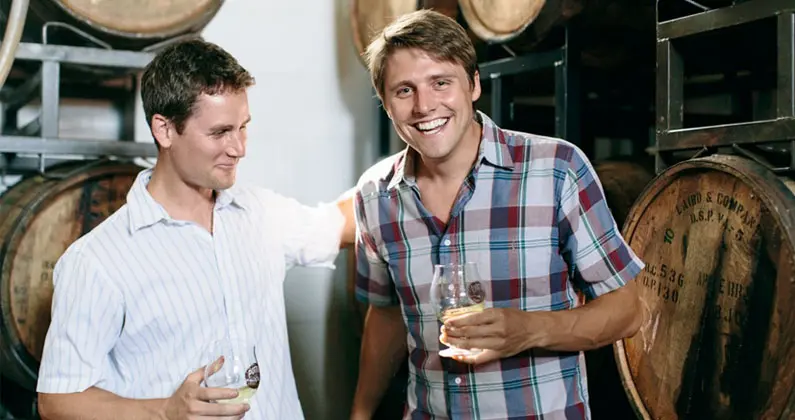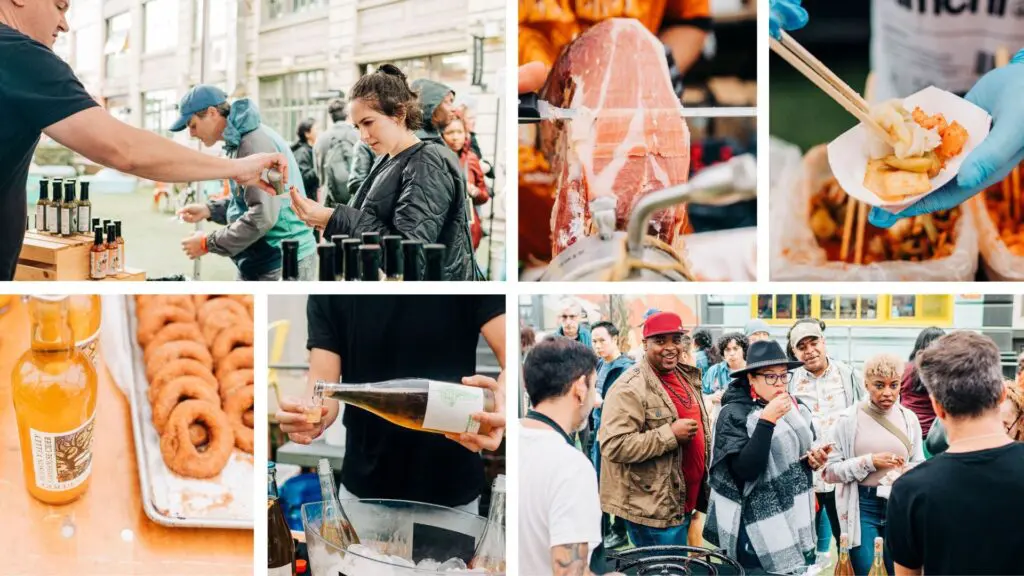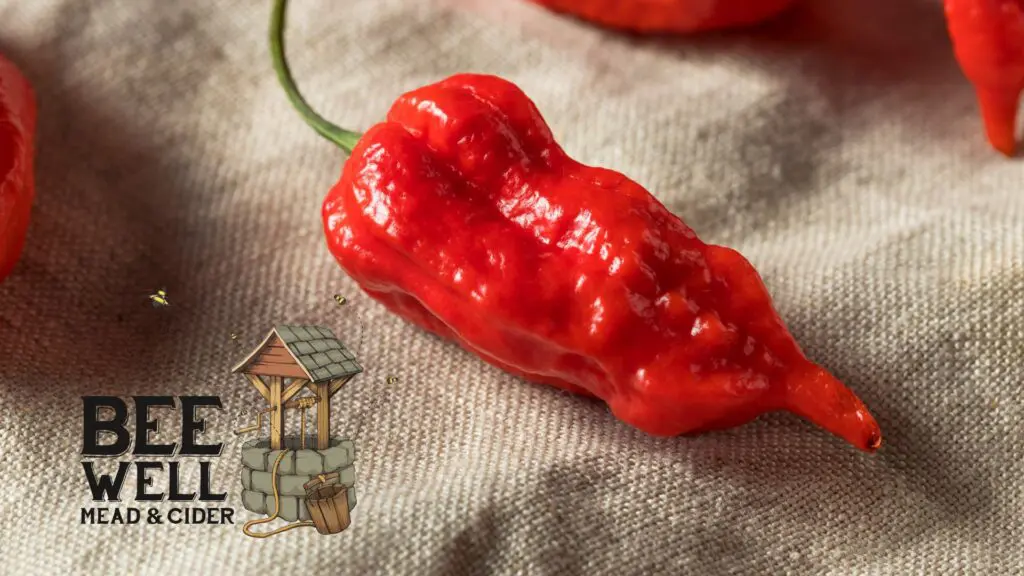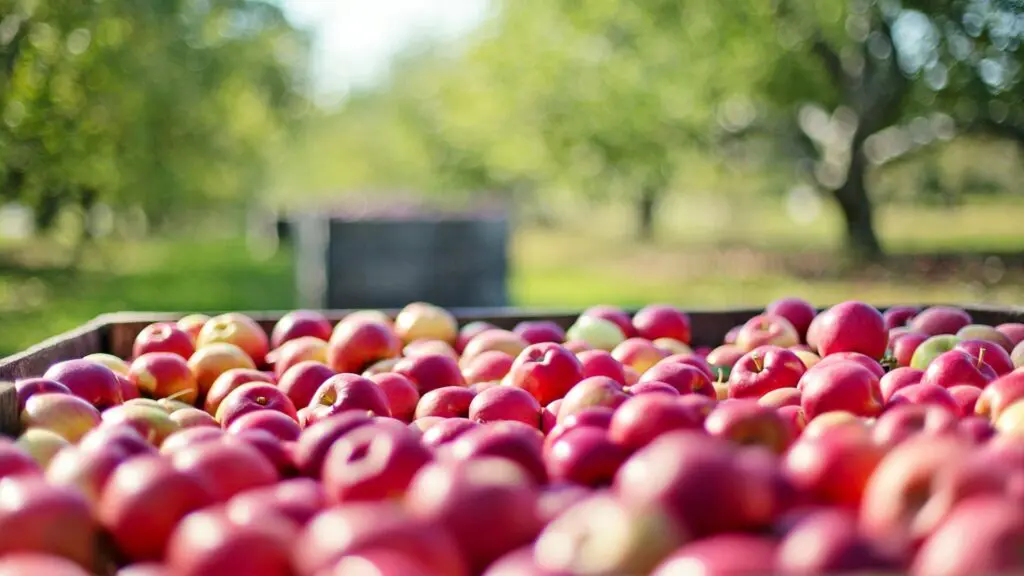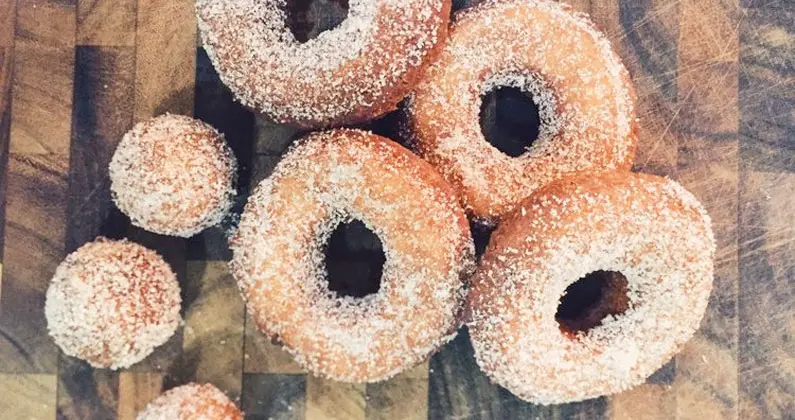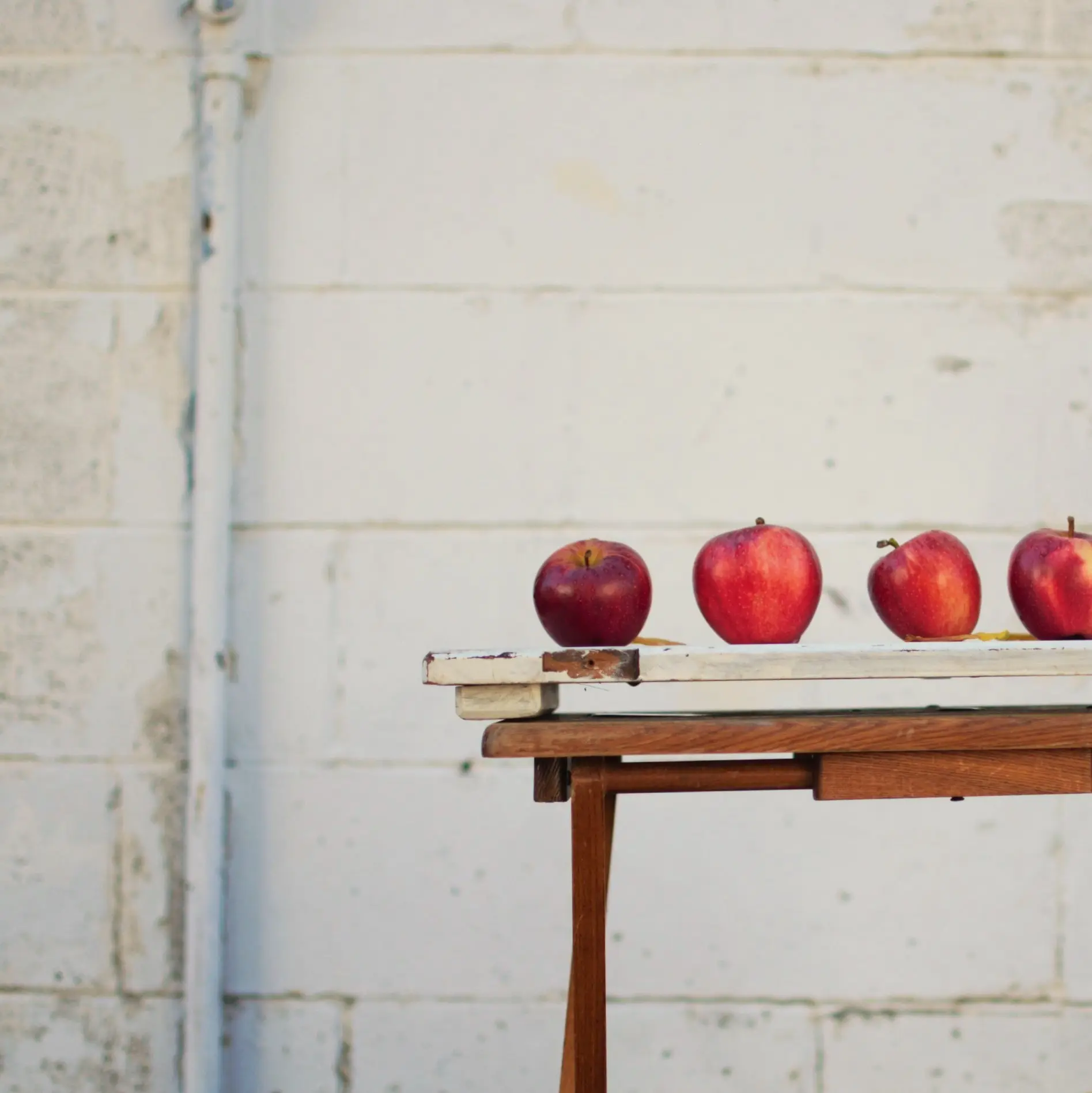By Erica Jackson Curran
Photo by Andrea Hubbel
Back when they were brewing beer in their Princeton dorm kitchen, Tim Edmond and Dan Potter couldn’t imagine transitioning into the world of cider. “I had never tried craft cider before, and I wasn’t interested in the category,” Edmond says.
After graduating and landing jobs in the real world (Edmond in finance, Potter in environmental engineering), the friends continued to experiment with homebrewing on the weekends, and eventually stumbled on the opportunity to plant a small hop yard at the Virginia plantation where Potter worked. They dreamed of creating a farmhouse brewery until the crop was flooded out—and that’s when they shifted their attention to Virginia’s burgeoning cider scene.
Following a few years of experimentation, Potter and Edmond officially founded Potter’s Craft Cider in 2011 on a small farm outside of Charlottesville. From their effervescent Farmhouse Dry to their fruity Hop Cider, Potter’s creations combine the best of Southern traditions with thoroughly modern sensibilities.
We recently sat down with Tim Edmond to chat about the cidery’s roots and what’s in the works.
Tell us about your setup at Wildair Farm.
It was a horse veterinary clinic that we renovated into a cidery—it’s very picturesque. They still board horses there, and since it’s a working farm, we don’t have our tasting room set up… We’re renovating an Airstream trailer from the 1960s and turning it into a cider tasting room. We’re really excited to get it out on the road.
Where do you source your apples?
The orchard we have at the cidery is still fairly young, at four-years-old, so we get a lot of our fruit from around Charlottesville. All of our fruit comes from local growers. The trees that we have at the cidery will take a couple of years to mature. We’re growing really cool varieties like Hewes Crab. Some of these varieties aren’t possible to find anywhere else.
What kind of apples do you use in your cider?
We basically balance acid, tannin, aromatic qualities and sugar content. With an eye on those four qualities, we’ll pick our apples, and there are a handful of varieties that are native to our area, like Albemarle Pippin, Gold Rush, Winesap, Arkansas Black. And others like Hewes Crab and Harrison, we’re growing and actively seeking out because they’re a little less available.
You do a lot of small-batch ciders. What do you like best about the process?
I feel like this is why we got into this business, going back to our homebrewing days. To explore and experiment with different techniques has yielded some awesome results. That’s what continues to propel us, finding new flavors and methods, and doing it in an authentic way. We’re working with real fruit and real production methods to make a cider with integrity that we can feel good about.
You often do collaborations with local companies. What are you working on now?
We got some rye whiskey barrels from Copper Fox Distillery, and we’re doing a barrel exchange program with them, where they’ll give us a barrel and we’ll put cider in it. They’re looking for apple qualities in their whiskey, so when they refill it with whiskey they get some of that apple character, and we can get that barrel back from them again. Theoretically we could keep that going on indefinitely. The barrels could outlive the project. They get neutralized if you’re looking specifically for oak or something like that, but we’re looking for other qualities found in what was aged inside of them. We get a lot more life out of the barrels, and it’s kind of a cool symbiotic type of thing.
What are your thoughts on Virginia’s cider scene?
Without exaggerating, I think Virginia is making the best cider in the country. It’s developed a really unique identity for itself in terms of the number of producers going in the craft direction. There are a lot of interesting things in the diversity of production methods, and there’s an identity and a regionalism developing in terms of Virginia cider. We started in 2011, and since then there’s been I think 13 or 14 new producers that have popped up.
What sets Potter’s apart from others in the industry?
We’ve gotten such a feel for the expression of the fruit. We have really awesome cider apples and hybrid apples in Virginia to use to make cider, and I feel like we’ve learned to let the apple do the talking and do the work. Every year we get better at expressing the real character of the specific apples we use.
My business partner Dan has done a great job of scouring the literature, especially on the wine side, pushing the envelope in terms of our technical abilities, and I think the ciders are really showing how much we’ve learned.
Potter’s Craft Cider is available in bars, restaurants, and retail stores throughout Virginia and Washington, D.C. The company has plans to expand to other states in the near future.

